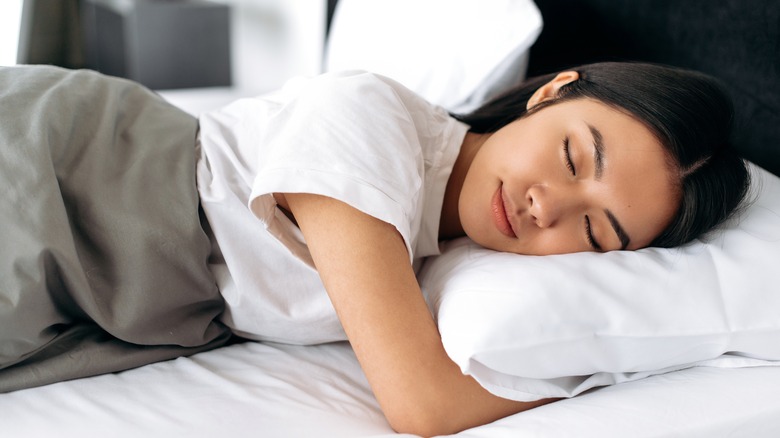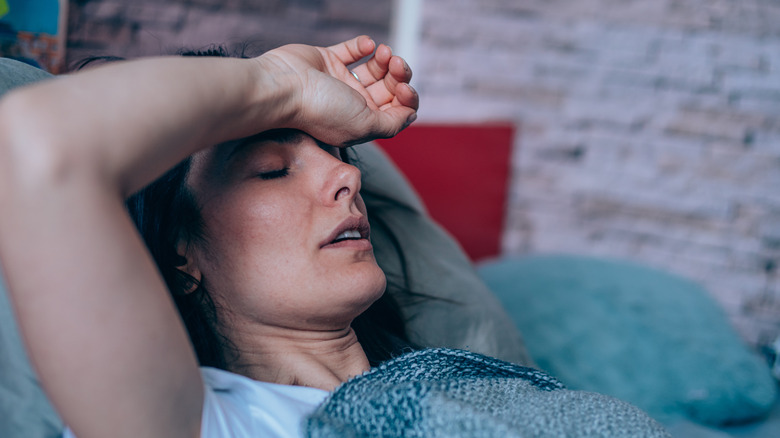In July 2024, Death Valley, California, reached a record high of 120 degrees…at midnight. More and more heat records are being shattered across the United States and the rest of the world. The excess heat isn’t a surprise to researchers who study climate change, as evidence points to climate change causing erratic conditions such as extreme heat waves (via Popular Mechanics).
Typically, as the sun sets, temperatures tend to cool down overnight, giving us a break from the excessive daytime heat (via the National Weather Service). Yet, a 2024 report from Climate Central says that average nighttime temperatures in the United States have increased by 2.5 degrees since 1970. When the nighttime heat still remains oppressive, climate change can have an impact on our health, especially for those who don’t have air conditioning. That’s because the heat stress can build up during the day. Without a break from the heat during the night, it could contribute to heat stroke (via CNN). Nighttime heat can also be dangerous because it can result in insufficient sleep.
Hotter temperatures can lead to fewer hours of sleep

A 2024 study in One Earth studied the sleep patterns of 47,000 people who wore sleep-tracking wristbands. The researchers then compared the data with meteorological data. When the temperatures rise, people have a harder time falling asleep, resulting in overall loss of sleep. This was particularly the case in lower-income countries, among older adults, and among females. Further analysis showed that by the end of the 21st century, excessive heat could have people losing between 50 and 58 hours of sleep each year.
Excessive heat could also lead to heat-related deaths, according to a 2024 article in The Lancet Planetary Health. Excessively hot nights can increase the risk of death by 50% compared to other nights during the year. The researchers predicted that by the end of the 21st century, the planet could have 30% more excessively hot nights that could be 50% more intense.
Keeping yourself cool during hot nights

A Climate Science Special Report found that the average temperatures in the United States have been increasing since 1895, and increasing at a faster pace since 1979. The report predicted that this continued acceleration of global warming would continue through at least 2050 without worldwide intervention. This means more frequent and extreme heat waves, and more days above 90 degrees in the summer. In other words, nighttime heat isn’t likely to ease soon.
The Sleep Foundation says that warmer temperatures in the bedroom increase your body temperature, which can disturb your circadian rhythm. You’re also more likely to wake up during the first few stages of your sleep because your body is more sensitive to temperature. Some mattresses and pillows are designed to circulate air and keep you cooler. Cotton and linen sheets and pillowcases are also more breathable than synthetics. It also helps to find the right apparel to sleep in so your core temperature stays cool. Setting your air conditioning to 65 degrees is ideal for sleeping.
Weather Underground has some suggestions to keep things cool at night, such as keeping a bowl of ice water by a fan. Putting your sheets in the freezer just before bedtime can cool them off, but be sure they don’t completely freeze. Sleeping with ice packs wrapped in towels can help cool your body temperature.




